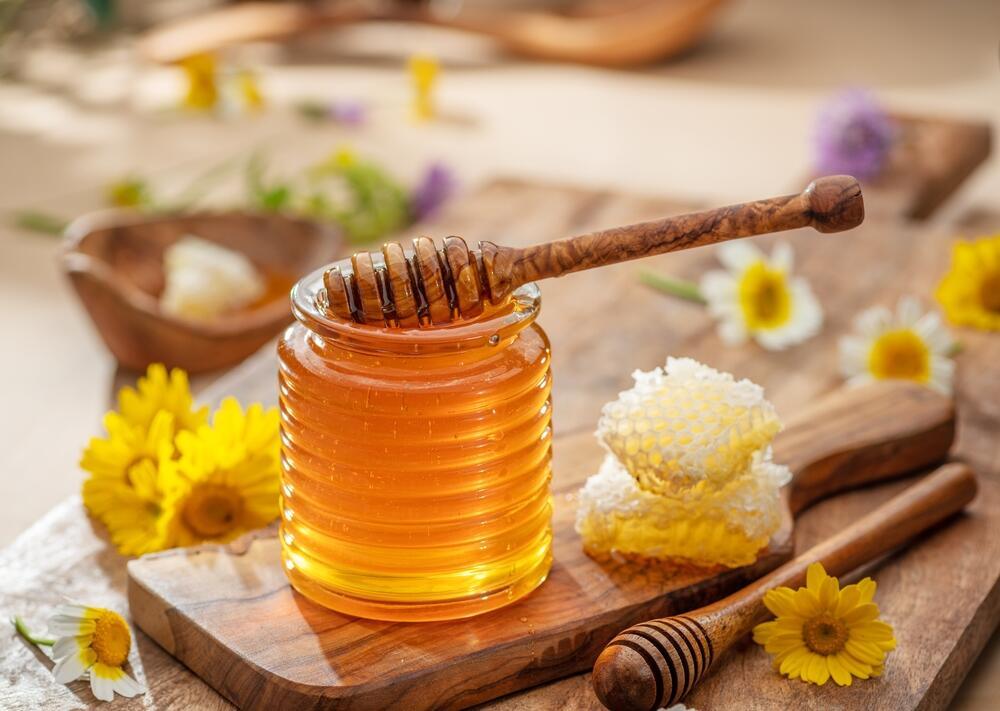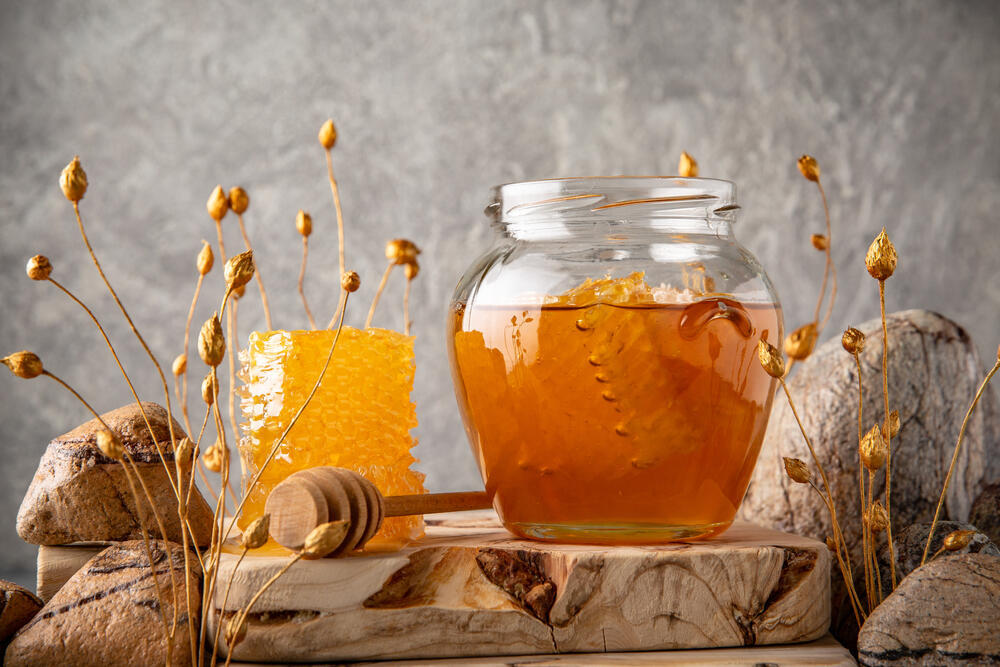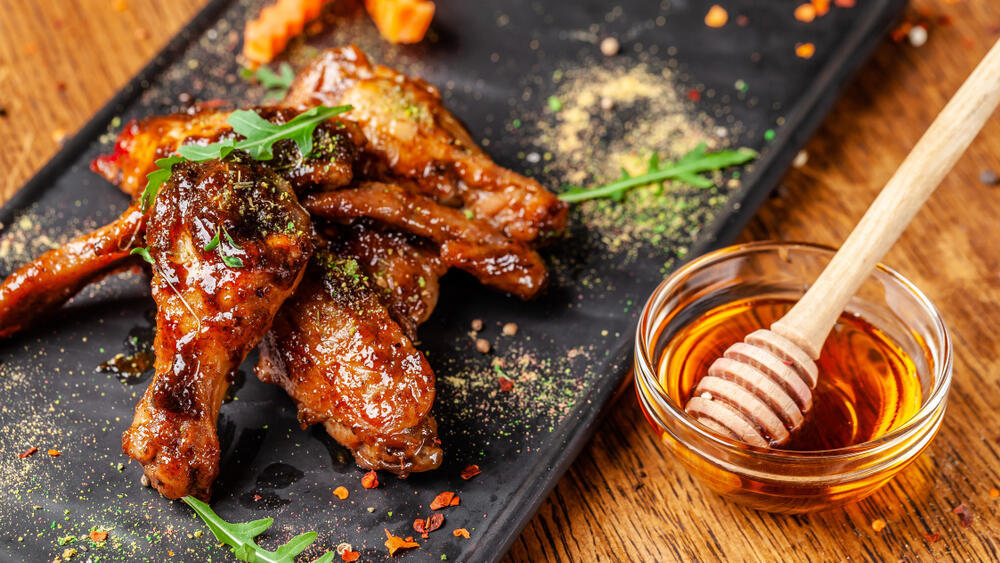Getting your Trinity Audio player ready...
Honey truly shines on the Rosh Hashanah table, celebrated for its alluring beauty, festive appeal and, most importantly, its sweet taste. But is every form of honey we consume actually beneficial for us?
Let’s dive into the essentials: a 100-gram serving of honey contains 82% sugar, less than half a percent of protein (not a significant amount), no fats, no fibers and the rest is water. A teaspoon contains about 30 calories.
Honey is packed with antioxidants from the polyphenol family, which give it its golden color, primarily flavonoids and carotenoids. The darker the honey, the richer it is in these compounds. Natural, volatile flavor and aroma compounds impart honey's characteristic taste and scent.
Bees craft honey from flower nectar, with the type of flowers determining the honey variety. In Israel, most honey is made from wildflowers. Other nectar sources for Israeli honey include citrus trees, eucalyptus, avocado trees, Judas tree, carob, sunflowers, Indian rosewood, moringa, jujube, loquat, acacia and herbs like rosemary, hyssop, sage, white savory and basil. The sweetness and color of honey vary with each type.
Honey has a lower glycemic index (a measure of how quickly blood sugar levels rise) than sugar, due to the more challenging absorption of fructose (a major sugar component) into the bloodstream compared to sucrose (white sugar), which is absorbed rapidly and completely. This difference arises from honey's sugar composition: fructose (40.9 grams), glucose (35.8 grams), and smaller amounts of other sugars such as galactose (3.1 grams), maltose (1.44 grams), and sucrose (0.89 grams).
A lot of sugar is not recommended for those who wish to maintain maximum health. Persistently high blood sugar levels can lead to insulin resistance (where cells do not respond to insulin, preventing sugar from entering cells), obesity, high triglyceride levels and fatty liver. Naturally, it all depends on the quantities consumed. Additionally, when honey or other sugars are eaten with proteins, fibers and/or fats, absorption slows, so sugar as part of a meal differs from sugar/honey consumed alone.
"Long cooking or baking of honey significantly reduces or completely eliminates vitamins. Although honey contains many B vitamins and vitamin C, their amounts are very small, so vitamins are not the reason to consume honey."
Whether fresh, in cooking or in baking, honey has been researched for its health benefits due to its enzyme and antioxidant content. Honey is not a staple food, making it difficult to draw conclusions from large population observational studies about whether the addition of honey (and its enzyme and/or antioxidant content) made a health difference, or if the difference resulted from other foods consumed by honey eaters.
Some raw honey products are sold directly from the hive without industrial processing. Most honey products are marketed after undergoing processing and pasteurization, including heating and filtering, which make honey less sticky and free from microorganisms, extending shelf life and reducing infection risks.
While we often recommend consuming foods as they naturally grow without industrial processing, this is not the case for milk and its products, and honey. Pasteurization is necessary to reduce levels of bacteria and various microorganisms that could be pathogenic (harmful and disease-causing). Studies generally do not find a link between antioxidant levels and pasteurization processes, meaning heating does not reduce their levels.
Other beneficial components in honey, such as polyphenols, enzymes, and small amounts of minerals, are not affected by short or long heating. Polyphenols even become more effective after cooking or baking.
Adding honey to industrial and processed products containing ingredients not recommended for health, such as emulsifiers, flavorings and preservatives, does not make the product healthier. Products without these ingredients, where sucrose is replaced with honey, will be slightly healthier, but it's important to remember that the recommendation is still for a small amount of honey due to the harm from large amounts of sugars.
The link between honey and cough prevention
In 2012, a study conducted by Professor Avner Cohen was published in the journal Pediatrics. The study found that a spoonful of honey before bed eased the severity and frequency of coughing in toddlers aged one to six. It's essential to emphasize that honey should not be given before the baby turns a year old. Honey consumption may contain spores of the Clostridium botulinum bacterium, which infants cannot handle and can be fatal for them.
In conclusion, the recommendation is to consume sugars in moderation due to health implications. Honey, because of its additional properties, is preferable to sucrose (white sugar) but should still be a relatively small part of a healthy diet that includes vegetables, fruits, whole grains, legumes, fish, yogurt and eggs.




